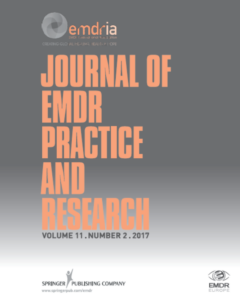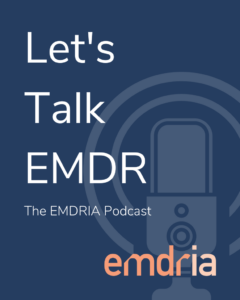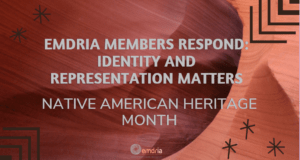Making Sense of Offense Related Trauma: Exploring Two Patients’ Lived Experience (Journal of EMDR Practice and Research)
This research explores offense-related trauma and EMDR with two patients who perpetrated violence offenses.
Read MoreEMDR Therapy and Traumatic Brain Injury
Dr. Michelle Morrissey discusses working with EMDR therapy and traumatic brain injury (TBI) clients/patients in this episode of Let’s Talk EMDR podcast.
Read MoreIn the News: November 28, 2022
EMDRIA members and EMDR therapy are featured in various articles and interviews. Learn more in this edition of In the News.
Read MoreCurrent treatments of post-traumatic stress disorder and amygdala ablation as a potential cutting-edge therapy in its refractory cases (Cureus)
The purpose of this article is to highlight the use of extremely selective laser ablation of the amygdala-hippocampal unit as a successful surgical intervention for medically unresponsive PTSD.
Read MoreEffects of intensive trauma-focused treatment of individuals with both post-traumatic stress disorder and borderline personality disorder (European Journal of Psychotraumatology)
This study’s purpose was to determine the effects of an intensive trauma-focused treatment program (EMDR and prolonged exposure) for patients with PTSD and borderline personality disorder.
Read MoreSafety, feasibility, and efficacy of EMDR Therapy in adults with PTSD and mild intellectual disability or borderline intellectual functioning and mental health problems: A multiple baseline study (Journal of Mental Health Research in Intellectual Disabilities)
EMDR therapy was found to be safe, feasible, and (potentially) efficacious in decreasing PTSD symptoms for adults with MID-BIF.
Read MoreEMDRIA Members Respond: Identity and Heritage Representation for Native American Heritage Month
EMDRIA Members answer the question “Describe a bit about your experience as a member of the Native/Indigenous community and how your identity has informed, strengthened, and/or challenged your EMDR practice.”
Read MoreEMDR Therapy with Veterans and Service Members
Dr. Jamie Zabukovec discuss her decades-long work experience using EMDR therapy with veterans and service members. Find out how her experience can help you and your clients.
Read MoreEye movement desensitization and reprocessing for post-stroke post-traumatic stress disorder: Case report using the three-phase approach (Brain Injury)
The current study reports on the feasibility, safety, and efficacy of EMDR therapy for PTSD subsequent to a pontine stroke.
Read MoreWhat Resources Does EMDRIA Offer?
A video on EMDRIA member resources. EMDRIA would not be possible without our members, and we are committed to continuing to develop resources to support this community.
Read More







